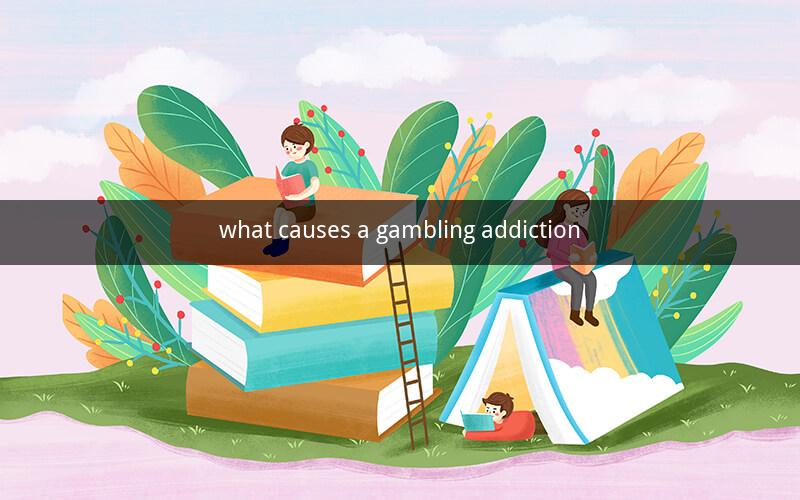
Table of Contents
1. Introduction to Gambling Addiction
2. Psychological Factors Contributing to Gambling Addiction
3. Sociological Factors Influencing Gambling Addiction
4. Environmental Factors and Their Impact on Gambling Addiction
5. The Role of Genetics in Gambling Addiction
6. Treatment and Prevention Strategies
7. Conclusion
1. Introduction to Gambling Addiction
Gambling addiction, also known as gambling disorder, is a behavioral addiction characterized by an inability to control or stop gambling despite harmful consequences. This condition affects millions of individuals worldwide and has become a significant public health concern. Understanding the causes of gambling addiction is crucial in addressing this issue effectively.
2. Psychological Factors Contributing to Gambling Addiction
Psychological factors play a vital role in the development of gambling addiction. Several psychological aspects can contribute to the development of this condition:
- Impulse Control: Individuals with poor impulse control are more susceptible to developing gambling addiction. This impulsivity can lead to compulsive gambling behaviors, as individuals struggle to resist the urge to gamble.
- Mood Swings: People with mood disorders, such as depression or anxiety, may turn to gambling as a coping mechanism. The thrill of winning can provide temporary relief from negative emotions, leading to a cycle of dependency.
- Cognitive Biases: Cognitive biases, such as the illusion of control and overconfidence, can influence individuals to engage in risky gambling behaviors. These biases lead to the belief that they can predict outcomes or control the game, making them more prone to addiction.
3. Sociological Factors Influencing Gambling Addiction
Sociological factors can also contribute to the development of gambling addiction. Some of these factors include:
- Social Influence: Peer pressure, social gatherings, and family dynamics can influence individuals to engage in gambling. Individuals who have friends or family members with gambling problems may be more likely to develop addiction themselves.
- Cultural Attitudes: The cultural acceptance of gambling can play a role in the development of addiction. In some societies, gambling is seen as a leisure activity, which may encourage individuals to participate more frequently.
- Economic Factors: Financial stress and the pursuit of wealth can drive individuals to engage in gambling as a means of solving their financial problems. This can lead to a cycle of debt and addiction.
4. Environmental Factors and Their Impact on Gambling Addiction
Environmental factors can significantly contribute to the development and progression of gambling addiction. Some of these factors include:
- Accessibility: The availability of gambling venues, including casinos, racetracks, and online platforms, can increase the likelihood of developing an addiction. Easy access to gambling opportunities can make it difficult for individuals to resist the urge to gamble.
- Marketing Strategies: The aggressive marketing and advertising of gambling products can influence individuals to engage in gambling. These strategies often target vulnerable populations, such as those with gambling problems.
- Technological Advancements: The rise of online gambling has made it more convenient for individuals to access gambling opportunities. This convenience can contribute to the development of gambling addiction, as individuals can gamble from the comfort of their homes.
5. The Role of Genetics in Gambling Addiction
Genetics play a role in the development of gambling addiction. Research has shown that individuals with a family history of gambling addiction are more susceptible to developing the condition themselves. Some genes may influence the brain's reward system, making individuals more prone to addiction.
6. Treatment and Prevention Strategies
Effective treatment and prevention strategies are essential in addressing gambling addiction. Some of these strategies include:
- Therapy: Cognitive-behavioral therapy (CBT) is an effective treatment for gambling addiction. CBT helps individuals identify and change negative thought patterns and behaviors associated with gambling.
- Support Groups: Joining support groups, such as Gamblers Anonymous, can provide individuals with a supportive environment to share their experiences and receive guidance.
- Prevention Programs: Implementing prevention programs in schools, communities, and workplaces can help raise awareness about gambling addiction and promote responsible gambling.
7. Conclusion
Gambling addiction is a complex condition influenced by a combination of psychological, sociological, environmental, and genetic factors. Understanding these causes is crucial in developing effective treatment and prevention strategies. By addressing the underlying factors contributing to gambling addiction, we can help individuals overcome this challenging condition and lead healthier lives.
FAQs and Answers
1. What are the psychological factors contributing to gambling addiction?
- Psychological factors include impulse control issues, mood swings, and cognitive biases.
2. How can sociological factors influence gambling addiction?
- Sociological factors, such as social influence, cultural attitudes, and economic factors, can contribute to the development of gambling addiction.
3. What environmental factors impact gambling addiction?
- Environmental factors include accessibility, marketing strategies, and technological advancements.
4. What role does genetics play in gambling addiction?
- Genetics can influence the brain's reward system, making individuals more susceptible to addiction.
5. What are some treatment options for gambling addiction?
- Treatment options include cognitive-behavioral therapy, support groups, and prevention programs.
6. How can individuals prevent gambling addiction?
- Individuals can prevent gambling addiction by setting limits, avoiding high-risk environments, and seeking support when needed.
7. What is the impact of gambling addiction on family and friends?
- Gambling addiction can have a significant impact on family and friends, leading to financial stress, emotional distress, and strained relationships.
8. How can employers address gambling addiction in the workplace?
- Employers can address gambling addiction by offering support programs, education, and resources for employees struggling with addiction.
9. What is the importance of early intervention in gambling addiction?
- Early intervention is crucial in addressing gambling addiction, as it can help prevent the condition from worsening and reduce the negative consequences associated with addiction.
10. How can policymakers contribute to reducing gambling addiction?
- Policymakers can contribute to reducing gambling addiction by implementing regulations on gambling, providing resources for treatment and prevention, and raising awareness about the issue.